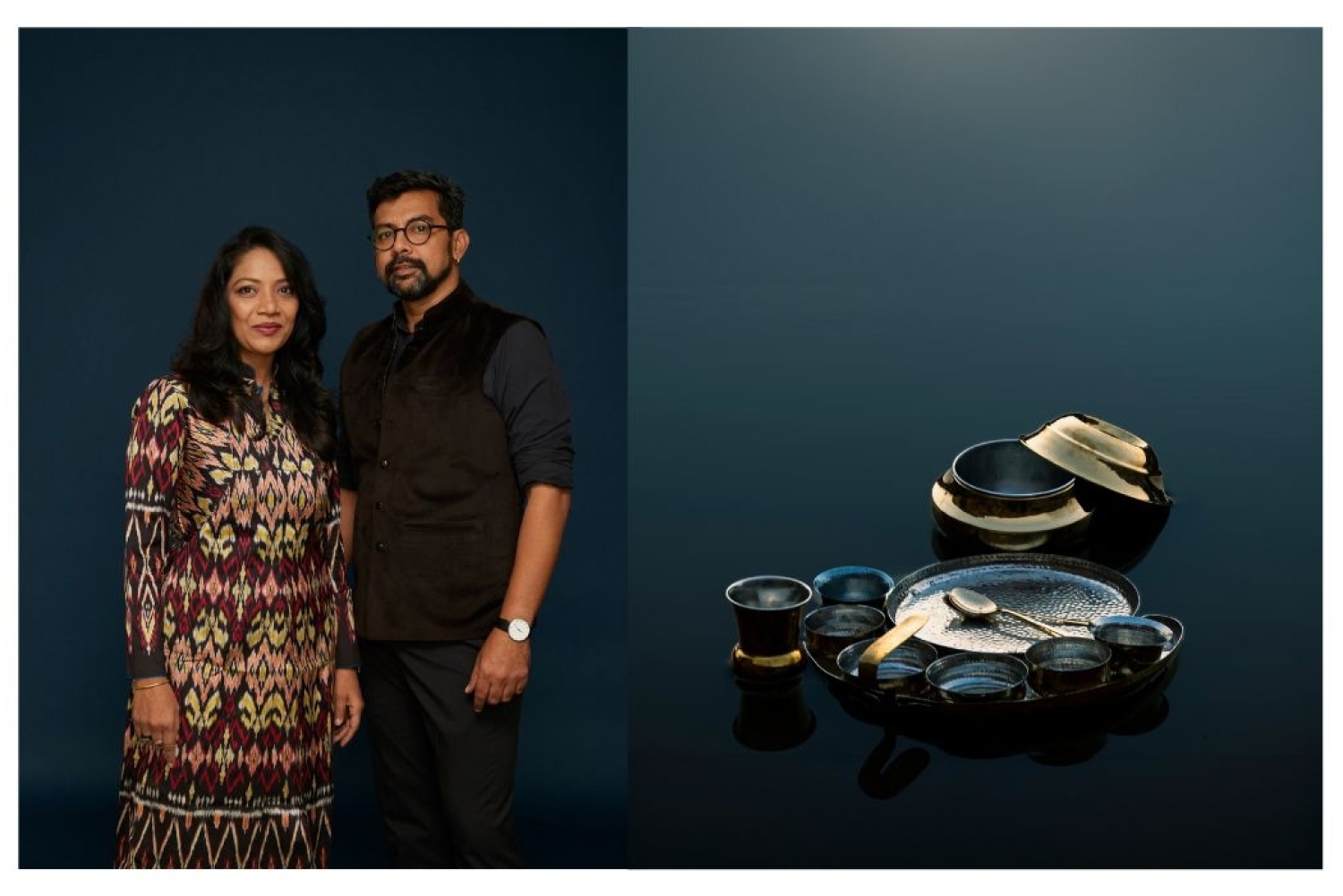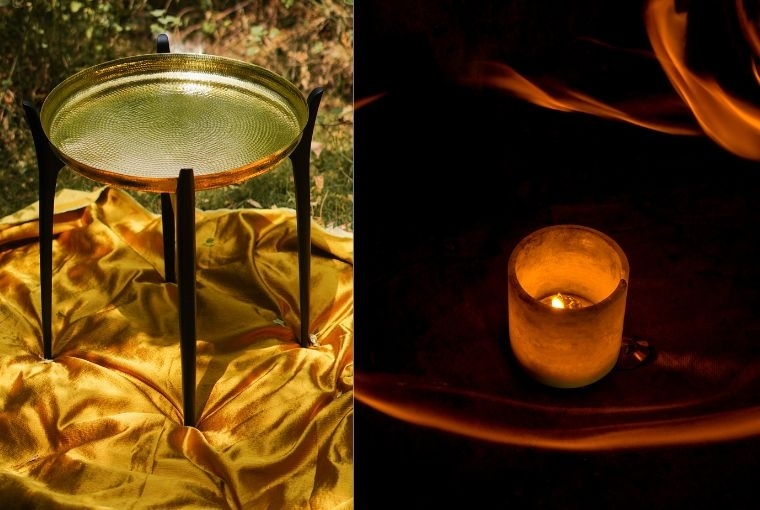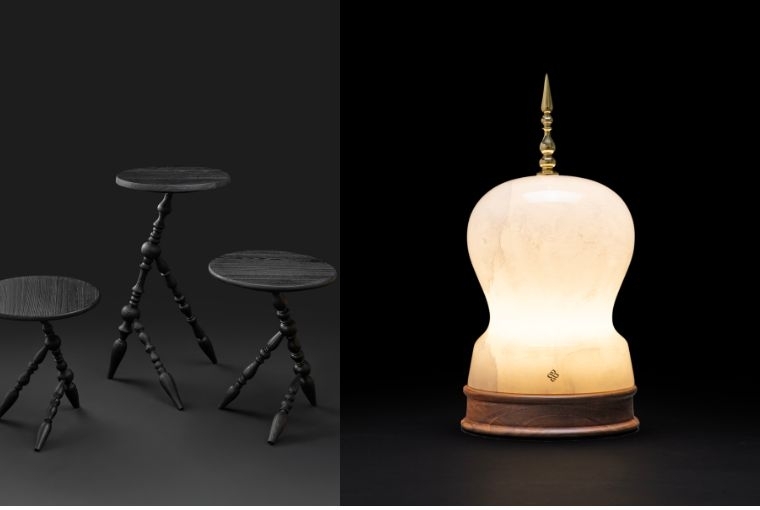

Jaipur-based Ayush Kasliwal, co-founder of the artisanal décor brand AnanTaya, creates contemporary designs rooted in India’s rich craft heritage. His work ranges from sculptural furniture and lighting to playful home accessories, pieces that often reinterpret age-old motifs in sleek, modern forms. An alumnus of the National Institute of Design, he has emerged as a leading voice in craft-centric design, championing sustainable materials and collaborative innovation in all his projects. In a recent conversation, Kasliwal shared insights on balancing heritage with innovation, sustainable storytelling through materials, and what it takes to keep traditional techniques alive in a modern world.
COLLECTIVE CREATIVITY
Both Ayush and his wife Geetanjali Kasliwal, the co-founder come from varied backgrounds but share the same core philosophy. ‘We believe in the power of human creativity not as something that we have individually, but what we have as a collective,’ Kasliwal says. India’s craft traditions exemplify this collective knowledge, blending intellect with the environment into a viable approach for the future. At the same time, he emphasizes that traditions must evolve with the times. AnanTaya, as noted by Kasliwal, is an expression of this conviction.

STORYTELLING THROUGH SUSTAINABLE DESIGN
For Kasliwal, sustainability goes hand-in-hand with storytelling. He sees material choices, craftsmanship, and narrative as intertwined facets of the same value system. ‘Storytelling creates emotional and intellectual connections, and the choice of materials and craft reinforce the story,’ he explains. Many AnanTaya pieces incorporate repurposed materials in unexpected ways, proving that sustainability itself can become a compelling narrative. One of his lounge chair designs, for another example, uses leather cords originally meant as sewing-machine belts for the seat’s webbing, turning a humble functional material into a visually striking element. Kasliwal describes his design language as ‘craft-forward,’ with each product’s identity deeply rooted in cultural context. This approach ensures that even the most innovative forms remain connected to heritage and the environment.
NEW VENTURES IN CRAFT AND COLLABORATION
When asked about his latest initiatives, Kasliwal reveals that his current projects span from high-end gifting to cultural installations. One ongoing project involves working with BMW to create installations that weave local crafts into regional narratives, highlighting the area’s unique heritage. AnanTaya’s social media presence is also a great window into the studio’s ever-evolving world, from sneak peeks at new product lines to behind-thescenes glimpses of workshops and artisan collaborations.
Take Jod Tod Mod, a whimsical tabletop game that fuses Andhra Pradesh’s delicate leather puppetry with the art of shadow play. The result is tactile and theatrical, a collectable object that doesn’t just sit pretty but becomes a medium of cultural storytelling. It’s AnanTaya’s design philosophy in action: revive, reinterpret, and re-enchant. Ayush and the team take storytelling seriously, often sharing the inspirations, processes, and craftspeople behind each object. Through the Creative Dignity initiative, AnanTaya co-develops products with craftspeople across India, items that artisans can retail independently, in partnership with AnanTaya, or as one-off art/design installations.

COLLABORATION AS A CREATIVE PARTNERSHIP
Engaging artisans and communities in the design process is central to Kasliwal’s practice. His approach to collaboration varies by craft and community; some projects are short-term capsules, others long-term commitments to gradually enhance quality and design in an artisan cluster. Yet across all projects, one thing remains constant: he opens ‘doors of imagination,’ treating artisans as equals and active contributors in the creative process. By inviting craftspeople to ideate as partners rather than mere executioners, Kasliwal ensures new collections truly blend contemporary design thinking with traditional wisdom.
LESSONS IN PRESERVING TRADITIONAL CRAFTS
After years at the confluence of craft and design, Kasliwal has learned there is no one-size-fits-all formula. ‘Every situation is unique,’ he emphasizes, underscoring the importance of awareness, empathy, and enthusiasm when working with traditional techniques. He believes the most important tools for a designer are understanding challenges and sparking excitement around possibilities. Kasliwal suggests design itself can sometimes be ‘a secondary process’, not always needed if a craft’s own sensibility shines through. He stresses that ‘each craft has a sensibility of its own, and is often its identity beyond the material and process,’ and that meaningful design comes from dialogue and deep respect for a craft’s intrinsic character. With this approach, age-old traditions can continue to inform and inspire the designs of tomorrow.

Words Harita Odedara
Date 17-9-2025